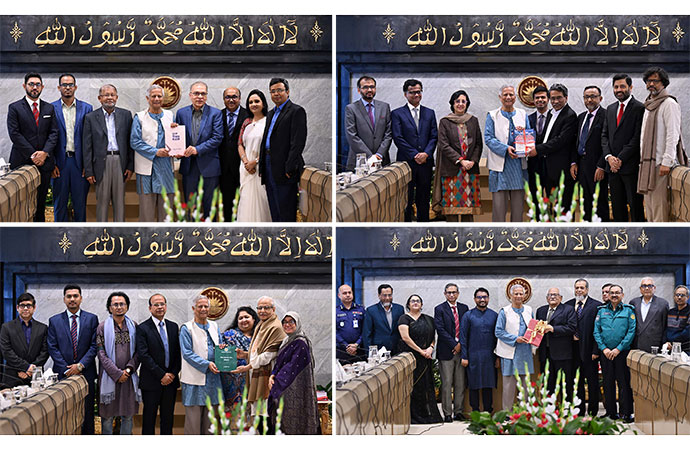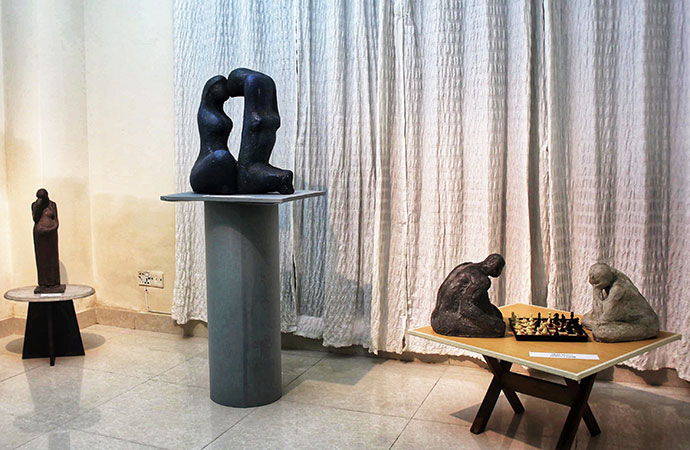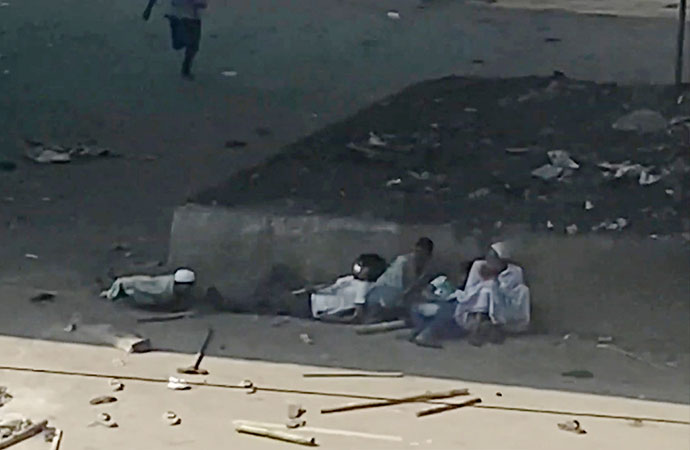Reportage

Photo: PID
The reports of the commissions for state reform appointed by the interim government of Bangladesh form the basis for a charter for a new Bangladesh will be formed by building national unity through talks.
The Chief Adviser said, "The reports submitted by the four reform commissions are very significant. Through these reform reports, we aim to form a charter born out of the popular uprising. This will be the new charter of Bangladesh, built on consensus. There will be elections, and everything else will follow, but we will not deviate from the charter."
"...what we want to form is to make a charter of the mass uprising, which will be the charter of a new Bangladesh. It will be based on unity. There will be elections; there will be all but we should not move from the charter," he said in his opening remarks at a reception for the first four commissions that submitted their reports to the CA on Wednesday (Jan. 15).
The reports with specific recommendations for state reforms, were submitted to Dr Yunus at the event at his office in Tejgaon.
Muhammad Yunus said the charter will be a national commitment, not some partisan commitment, since all parties will sign up for it. By 'all' we mean everyone except the Awami League and its partners in crime of course, in post-revolutionary Bangladesh.
"It will be a charter of the Bangali nation and we will move forward bearing it in our heart," he stated.
Mentioning that the charter will be an important document, the chief adviser said the elections would be a part of the charter, while the polls will be held based on unity, otherwise the charter will get lost.
Terming the report submission ceremony a historical moment, he said the event will remain as a part of history.
Noting that the nation has been 'reincarnated' from the ruins wrought by the p[revious administration, the chief adviser said the day's programme was an integral part of that history. "These are not some isolated reports. The reports that we have taken up today are certainly a big exercise for our country. None will deny that," he added.
"The vision of a new Bangladesh that we aspired to build rested on your shoulders (members of the commission). You have drafted the framework for those dreams, marking the beginning of a new chapter," Yunus told the members of the reform commissions.
In his closing remarks, the chief adviser stressed removing overlapping and repetitive in the reports of the reform commissions so that clear reports could be presented before the nation. Later we learned the commissions have each been given an extra month, that is till the middle of February, to 'coordinate' the final version of their reports.
Urging all to maintain the spirit of the July revolution, he said: "Our emergence was from it (mass uprising)... justification is that we are a part of it. We should not forget it."
Dr Yunus underscored the need for building national unity to fulfill the aspirations and dreams of the country's people.
At the function, the chiefs of the Constitution Reform Commission, the Election Reform Commission, the Anti-Corruption Reform Commission and the Police Reform Commission handed over their reports to the chief adviser.
What comes next?
The interim government will start formal talks with political parties in February for reaching a consensus over the reform initiatives.
Environment Adviser Syeda Rizwana Hasan and Law Adviser Asif Nazrul said this at a press briefing at the Foreign Service Academy after the submission of the reports of the four reform commissions.
"I think the talks with political parties could be opened in the middle of February next," said Rizwana Hasan. Although this raised eyebrows, Asif Nazrul said if the coordination works can be finished quickly, the formal talks with political parties can be opened in the first week of February.
The reform commissions have been given one more month to coordinate regarding overlapping issues and carry out related works.
However, the full reports of six reform commissions-these four commissions, the Judiciary Reform Commission and the Public Administration Reform Commission- will be made public by January 31 next.
About the reform plan, Asif Nazrul said there are four phases of the government reform work plan --- preparation of the reform reports by the commissions, holding talks with political parties to reach consensus over reform proposals made by the commissions, formation of necessary laws and policies on the basis of consensus and implementation of agreed reform proposals.
He said a national consensus commission has been formed under the leadership of Chief Adviser Dr Muhammad Yunus for holding talks with the stakeholders. This was announced earlier by the CA, when he also said Ali Riaz will be the vice-chair of that commission.
"We hope and wish that we will be able to complete the entire tasks. However, this depends mainly on the consensus of the political parties --how much they can agree on reforms," said the law adviser.
During the talks, the government will identify the minimum reform issues for an election to be held, identify the issues where a consensus can be found.
Besides, the government will also identify other desired reform issues, he said.
"If they (the chiefs of the six commissions) can finish the work early, it (talks with political parties) could start in the first week of February," said Asif Nazrul.
Talking about the coordination works of the commissions, Rizwana said the government will extend the working time for the six commissions by one month through a notification on Thursday.
She said the government will be able to give a roadmap on what reforms should be done instantly and what should be done later. "We think we will be able to give you a roadmap within a month," she said.
A charter, but no proclamation
The day after, Dr Yunus once again emphasised that the interim government was forged in the unity to bring down a 'Fascist' and put the onus on his colleagues to maintain this unity going forward, in order to carry the nation towards its desired goals.
"We (interim govt) were born amid unity and unity is our strength," he said, recalling that the government was born and created through unity.
Speaking at the all-party conference over the proposed "July Proclamation" at the Foreign Service Academy, Dr Yunus said they feel a bit weak when they work alone and see no one is beside them.
"And when you all sit together, we get encouraged in mind that we remain united," he said while delivering his opening remarks at a meeting with political parties.
Leaders of all political parties and forces involved in the July mass uprising, including BNP, Bangladesh Jamaat-e-Islami, Hefajat-e-Islam, Ganatantra Mancha, the Anti-Discrimination Movement, and the Jatiya Nagorik Committee, attended the meeting chaired by Chief Adviser Dr Yunus.
At one point though, there was some speculation that BNP wouldn't attend the meeting. It followed some weeks of growing friction between itself and members of the Jatiya Nagorik Committee, or Janac, which may be considered the forerunner to the students' eventual political party, that is being primed to reveal itself in the coming months and then to compete in the next election. Tensions have grown as this has become more and more of an open secret in recent weeks.
With no sign of an AL revival on the horizon even, BNP and Janac have been trading blows along the emerging political battle lines of the next election. BNP leaders express regular displeasure over the time and energy being spent by the government on nurturing a new 'King's Party'. On the other hand, Janac's key spokespersons, like joint convenor Nasiruddin Patwary, have spoken witheringly about BNP being stuck in the old ways of politics, and even expressed doubts regarding their ability to ditch old habits such as extortion and intra-party feuding for contracts and other benefits.
Notably, when the students had first announced they would be issuing a proclamation, in December, BNP had cold-shouldered it. Eventually however, the relatively junior Salahuddin Ahmed, who is nevertheless a member of the party's standing committee, represented BNP at the talks.
Mentioning that the government gets rejuvenated through unity, Dr Yunus relayed at one point how one day, the students of the July Revolution came to him and told him that they would like to make a declaration - the July Proclamation.
"I tried to understand what proclamation they are going to make. I told them that it would not happen," he said, adding that he advised the students to craft a proclamation involving all the stakeholders of the July Revolution.
The aim of the meeting was to finalise the 'July Proclamation' through a consensus. The fact that the night ended without one, indicates there is still a lack of consensus around this point of the proclamation.
Dr Yunus however insisted that the nation remained united, and he pledged that he would maintain the unity as long as his interim government would remain in power. "We must go on this path. Give us this courage. Today, I feel courage by sitting with you again."
Dr Yunus said if the 'July Proclamation' could be declared through unity, it would be good for the country and become good internationally too, showing the country's people and the world at large that the unity of the nation, or at least the forces that propelled the July 36 Revolution, remains intact and solid.
Law Adviser Asif Nazrul said all political parties have reached a consensus about an inclusive "July Declaration" recognising the contributions of all parties and forces that participated in the recent mass uprising.
Briefing reporters after the meeting in front of the Foreign Service Academy on Thursday, he also said a work plan would be chalked out soon regarding the formation of the July Declaration based on consensus.
"A consensus has been reached on the formulation of a declaration for the July mass uprising in the meeting. Everyone agreed that such a declaration is necessary, but many suggestions have been given in this regard," the adviser said.
Some have held out the possibility that given the unusual importance Dr Yunus attached to a 'charter' for a new Bangladesh emerging out of the reform proposals placed by the six commissions (of which four already have), a compromise document containing the elements of the reform proposals that eventually decide to have, combined with elements of the July Proclamation sought by the students, might be the best way forward. Just to revisit some of what the CA said on the Wednesday, that is, after receiving the commission reports, with the meeting over the proclamation set for the next day.
Towards the end, addressing the commission members, the Chief Adviser said, "We entrusted you with the task of shaping the framework for a new Bangladesh, driven by a dream. That dream still exists, and the outlines of that dream must be presented. This is not the end but the beginning of a chapter. The journey following the dream and the uprising has begun. A significant part of this journey will be reflected in these reports, showing what we want to achieve. Through this, we will start discussions with everyone to ensure that everyone's agreement and commitments are being fulfilled."
Dr. Yunus further stated, "Consensus will be built through this, with all parties agreeing on some aspects. If not, what is the purpose of our dream? We cannot dream in isolation without including people in that dream. This discussion is about how much of that dream we have brought here. It is not something imposed from outside but something that has emerged from within."
He emphasized, "As you have envisioned on their behalf, how their dream will merge with yours. Through this, we aim to create a charter from the popular uprising, which will be the charter of a new Bangladesh. This charter will be built on consensus. Elections will be held, everything will happen, but the charter will remain. This charter will stay as a part of history and our national commitment. It is not a partisan commitment, and we hope that all parties will sign up to this charter."
And then he concluded, "This is a charter of the Bangladeshi, Bengali nation that we will carry forward. We will implement it as quickly and extensively as possible. The future elections will also be based on this charter. It should be a consensus government that says, 'We have upheld the charter.' No matter what happens, we must not let go of this charter. Otherwise, how will the continuity of this dream remain? We want the continuity and implementation of that dream."
The Standout Proposals
As one may have expected from the lack of specificity in their appointments, it has ended up yielding too many proposals. All of them. Sorting out the good from the bad may not be a problem, but the good from the better might present problems, and potential disagreements.
The Electoral Reform Commission was headed by Badiul Alam Majumder of Shushashoner Jonno Nagorik (SHUJAN). Its key proposals include forming a special investigation commission to identify those responsible for the fraudulent 2018 election, conducting re-elections in constituencies where less than 40 per cent of votes are cast, and expanding the Election Commission's powers while ensuring their accountability.
For local government elections, the commission recommended making them non-partisan and scheduling them before the national elections. In total, the commission outlined approximately 150 recommendations across 16 areas.
The ACC Reform Commission, headed by Iftekharuzzaman of Transparency International's Bangladesh chapter, has recommended increasing the number of commissioners, formation of a search committee, law amendments, salary raise and additional incentives to establish the ACC as a strong, effective and ombudsman agency. In total, it made 47 recommendations.
The Police Reform Commission, headed by Safar Raj Hossain, a retired civil servant who was Home Affairs Secretary from 2003-7, has submitted a report seeking clear limits on the force's power in controlling illegal gatherings and processions, along with guidelines for arrests without warrants and questioning suspects in custody. In addition, the commission has sought amendments and revisions to 22 laws to reform the police force.
Radically Redacted
The most radical reform proposals, perhaps, are to be found in the report of the Constitution Reform Commission. Headed by Professor Ali Riaz, a distinguished professor of political science at Illinois State University, it proposes replacing nationalism, socialism, and secularism with equality, human dignity, social justice and pluralism as fundamental principles of state policy. The only core principle retained from the 1972 constitution is democracy.
The commission also recommends an interim government to conduct elections, a bicameral parliament, two-term limits for the president and prime minister, lowering the age limit of MPs to 21 from 25 and a national constitutional council to oversee appointments of constitutional bodies like the Election Commission as well as the chief adviser of the interim government.
The commission recommends calling the nation "Bangladeshis" instead of the previous "Bengalees" and further proposes recognition of mother tongues of all Bangladeshis as common or traditional languages. Bangla will remain the state language.
On the much discussed article 70, the commission recommends that parliamentarians be allowed to vote against party lines except finance bills. To strengthen parliamentary watchdogs, the commission proposes that the standing committees be always led by members of the opposition.
The Senate will consist of 105 members, of whom 100 will be determined by the proportion of votes in the national election.
The commission recommends the appointment of an interim government to conduct elections and remain in office until the next elected government takes oath. The interim government's head, the chief adviser, will have to be appointed either 15 days before the expiry of the assembly or within 15 days of dissolution of the assembly. The reform proposals lay down elaborate provisions for the appointment of a chief adviser for the interim government.

























Leave a Comment
Recent Posts
Right On Schedule
The most eagerly anticipated, and frankly hyped up, announcement of an ...
Fighting raged along the borde ...
Fighting raged along the border of Cambodia and Thailand, with explosi ...
ICIMOD drives regional cooperation to inspire new mo ..
The Cage of Captivity and the Cry for Freedom: A Cru ..
Why Japan issued an advisory for a possible megaquak ..
The Autocrats’ War on Universities